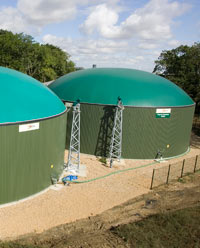Boost for biomass power in first energy statement

Renewable energy projects generating electricity from wood or waste received a boost today (27 July) when the government announced extra support for the biomass sector.
In the first Annual Energy Statement to Parliament, Energy and Climate Change Secretary Chris Huhne set out 32 actions being taken to accelerate the transformation of the energy system and wider economy.
Among them was a decision to “grandfather”, or fix, levels of support under the Renewables Obligation for 20 years after completion, subject to the 2037 end date for the RO. This brings most bioenergy projects into line with other technologies such as wind.
There had been concern in the industry that the lack of “grandfathering” had caused a number of biomass projects to stall as investors placed a high discount rate on future Renewables Obligation Certificates levels and therefore struggled to secure adequate financing.
It was hoped the announcement would give more certainty to investors considering the long-term viability of generating electricity from dedicated solid and gaseous biomass, energy from waste, anaerobic digestion and advanced technologies, such as gasification and pyrolysis.
But, the Department of Energy and Climate Change signalled more time was needed to evaluate whether to extend the same grandfathering guarantees to electricity generation from liquid fuels.
DECC has also published proposals for “robust and credible standards” to ensure that the biomass used for electricity generation in the UK is sustainable, delivering “real carbon reductions and increased energy security”.
This autumn DECC will publish a joint industry/government action plan outlining how to deliver a “huge increase” in energy from waste through anaerobic digestion.

